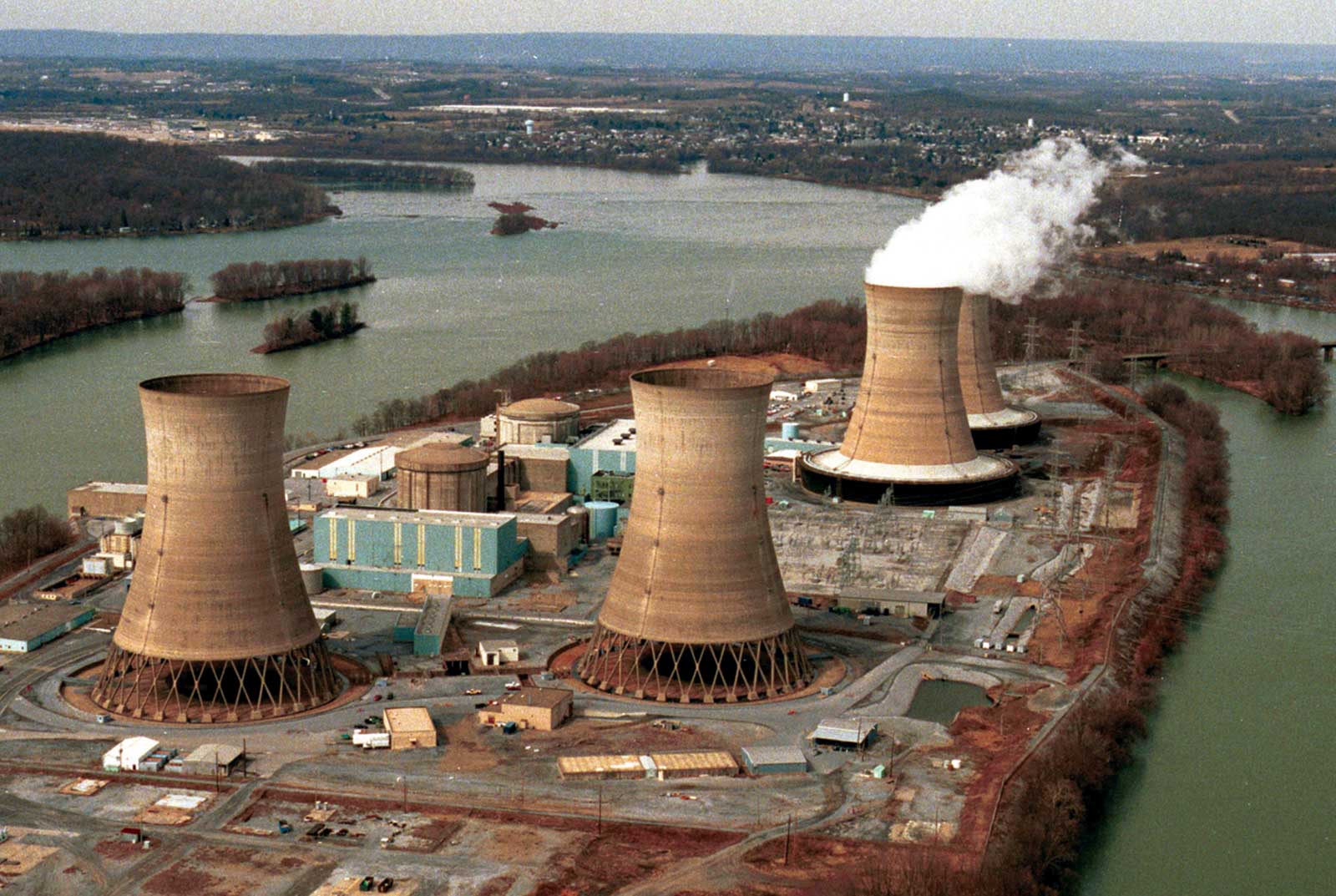Three Mile Island
In the predawn hours of March 28, 1979, a pressure valve suddenly malfunctioned at the Three Mile Island nuclear power plant near Harrisburg, Pennsylvania. The accident started at the plant's Unit 2 reactor when a small valve failed to close, causing cooling water to drain from the nuclear core. The core quickly began to overheat. Confronted by baffling and contradictory information, plant operators shut off the emergency water system that would have cooled the core.

By early morning Wednesday, March 28, the exposed part of the core was beginning to cook as temperatures in the reactor reached 4,300 degrees Fahrenheit--dangerously close to meltdown. But when contaminated water leaked into an adjoining building and started to release radioactive gases inside the plant, Three Mile Island's supervisor declared the first general emergency ever to arise at a nuclear power plant in the United States.
On March 30, pregnant women and school-age children were advised to leave the area. This announcement unleashed a wave of panic as residents tossed a few belongings into their cars and sped off. More than 140,000 would eventually flee.
Friday also brought a new, more terrifying revelation: a hydrogen bubble had formed above the reactor core. The bubble could prevent cooling and eventually lead to a meltdown.
That afternoon, scientists finally determined that the hydrogen bubble posed no immediate threat, and that the reactor core had stabilized. Three years after the accident, a robotic camera was lowered into the Unit 2 core, providing the first look at what really had happened. Fifty percent of the core was destroyed or molten, and something on the order of 20 tons of uranium found its way to the bottom head of the pressure vessel.
Since the Three Mile Island incident, not a single new nuclear power plant has been started in the United States.